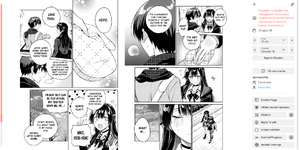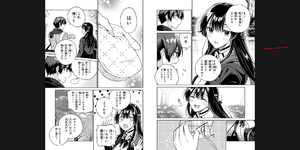True, some of the line breaks really look like "Oh crap, I'm running out of space, let's crowbar a break in at the last possible point, aesthetics be damned" rather than focusing more on shaping a more pleasant "text picture".if it were me, I would try not to hyphen it at all, or hyphen it based on the kanji, so it is "hitotsu-ba"
But that's highly subjective and therefore unreliable. After all, you don't pronounce the "hi" in, say, "hitomi" like the greeting, "Hi!", as in, with an /ai/ dipthong, just because that's what someone native in or at least habitually familiar with the English language would likely go to first. Meaning, you can't fully rely on English, let alone your own speech habit or feeling, to judge whether "the natural" is also the agreeable. In a sense, you had to learn how to read Hepburn, too.I just think like in this discussion that hyphenated word should ensures its correct pronunciation
that's why I said that when you think about how to pronounce "hitotsu", the natural sound is "hitot-su" or "hitot-tsu"
Besides, Hepburn isn't reserved to English-speaking audience after all. So, as unofficial Hepburn may be, it's better to stick to the one convention there is and not start making up more.
One could only wish typesetters would use such tools, in general at least, if only to prevent at least such garbage as "underst-and".or maybe the translator just using some automatic hyphenation algorithm in their word processor or something
because some techniques produce such results
Last edited:

